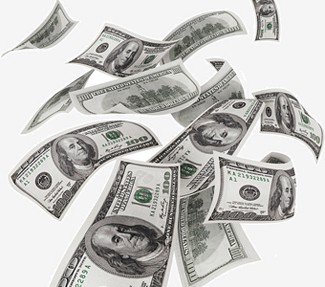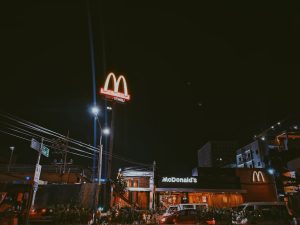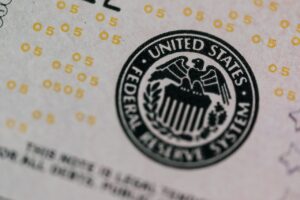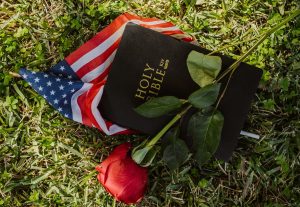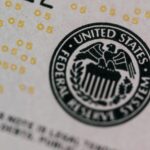A form of campaign financing that didn’t even exist less than a decade ago is playing a major role in the 2016 race for president.
Super PACs already are raising millions of dollars to support potential presidential candidates, even though none of these possible candidates have yet to declare that they’re running. While political action committees existed for years, the monster PACs have really taken off since a pair of Supreme Court rulings in 2010.
- Democrat Hillary Clinton’s SuperPAC, Ready for Hillary, was created by supporters in 2013 to encourage her to run for president next year and has raised nearly $13 million.
- Republicans Jeb Bush, Carly Fiorina, Gov. Bobby Jindal and Rick Santorum all have Super PACs backing them.
- And although Massachusetts Sen. Elizabeth Warren has repeatedly insisted she isn’t running for president, her progressive supporters have established the Ready for Warren super PAC should she change her mind. Ready for Warren has raised less than $100,000 as of its most recent filing on Dec. 31, according to the Center for Responsive Politics.
Super PACs are proving to be an invaluable tool for those considering a presidential run because they can raise unlimited amounts of money from corporations, unions, associations and individuals before the candidates even formally announce they are running. Potential candidates who are not officeholders are even allowed to solicit funds for Super PACs, which are supposed to operate independently of candidate campaigns.
While there are no limits on the amount of money Super PACs can spend to advocate for or against political candidates, these PACs must report their donors on a monthly or quarterly basis.
Supreme Court decisions in the infamous Citizens United v. Federal Electon Commission and SpeechNow.org v. Federal Election Commission cases led to the creation of Super PACs in 2010. The decisions have restructured the nation’s entire campaign finance structure and, in the minds of some, polluted the electoral process with unlimited amounts of cash.
Super PACs raised and spent hundreds of millions of dollars to support and attack candidates in the 2012 presidential campaign.
Daniel Tokaji, a law professor at Moritz College of Law in Ohio and the co-author of “The New Soft Money,” a book examining independent campaign spending, recently told National Public Radio that in his opinion campaign financing has become almost unregulated.
What Citizens United and related cases from the Roberts court have given us is a system that is pretty close to no holds barred. So we’re not quite to a completely deregulated system, but we are pretty darn close to that now.
Several candidates and their supporters are blurring the lines between Super PACs and other types of PACs that have contribution and spending limits.
In January Bush, the former governor of Florida, created a leadership PAC called “Right to Rise” to support conservative candidates. Leadership PACs also can be used by those who establish them to pay for traveling costs as they drum up support for a possible election campaign.
Meanwhile, the organization surrounding Bush created a Super PAC with the same name. Craig Engle, a campaign finance lawyer who worked for candidate Jon Huntsman in the 2012 Republican campaign told NPR the arrangement doesn’t violate campaign laws.
So long as you do not take steps to actively and publicly campaign, then a superPAC is permissible. If you have a superPAC and there isn’t a candidate, there’s no worry of coordination because there aren’t two entities that could be coordinating.
Louisiana Gov. Bobby Jindal, who also is considering a run for president, recently changed the name of his leadership PAC from “Stand Up to Washington” to “Believe Again,” the same name of a Super PAC established by friends of the governor to raise funds in support of a potential Jindal presidential candidacy.
If that weren’t murky enough, some campaign finance experts say candidates will be relying more than ever on “dark money” groups that will supplement spending by Super PACs.
These nonprofits organizations are legally known as 501(c)(4) social welfare groups and, like Super PACs, can raise and spend unlimited amounts of money. But they are not required to disclose their donors.
The anonymity afforded the contributors to these groups may result in them being an even bigger influence on the 2016 presidential campaign than Super PACs, according to the National Journal.
Already, at least four Republicans—Rick Perry, Rick Santorum, Bobby Jindal, and John Kasich—are linked to nonprofits staffed by allies helping to promote their vision for America. They have used these nonprofits to poll and formulate policy, to hire operatives and travel the country, to build national networks and keep themselves in the spotlight.
Money has always talked in politics. But in 2016, it will shout.
Here are the names of potential presidential candidates and corresponding Super PACs identified in media reports:
Republicans
Jeb Bush, Right to Rise
Bobby Jindal, Believe Again
Carly Fiorina, Unlocking Potential
Rick Santorum, Patriot Voices
Democrats
Hillary Clinton, Ready for Hillary
Elizabeth Warren, Ready for Warren
STORY IDEAS



